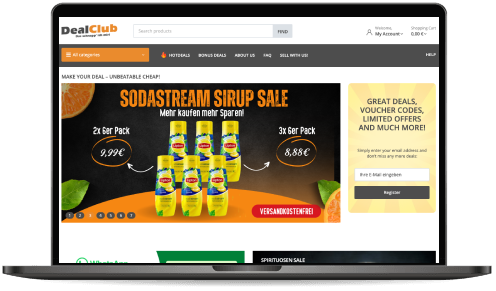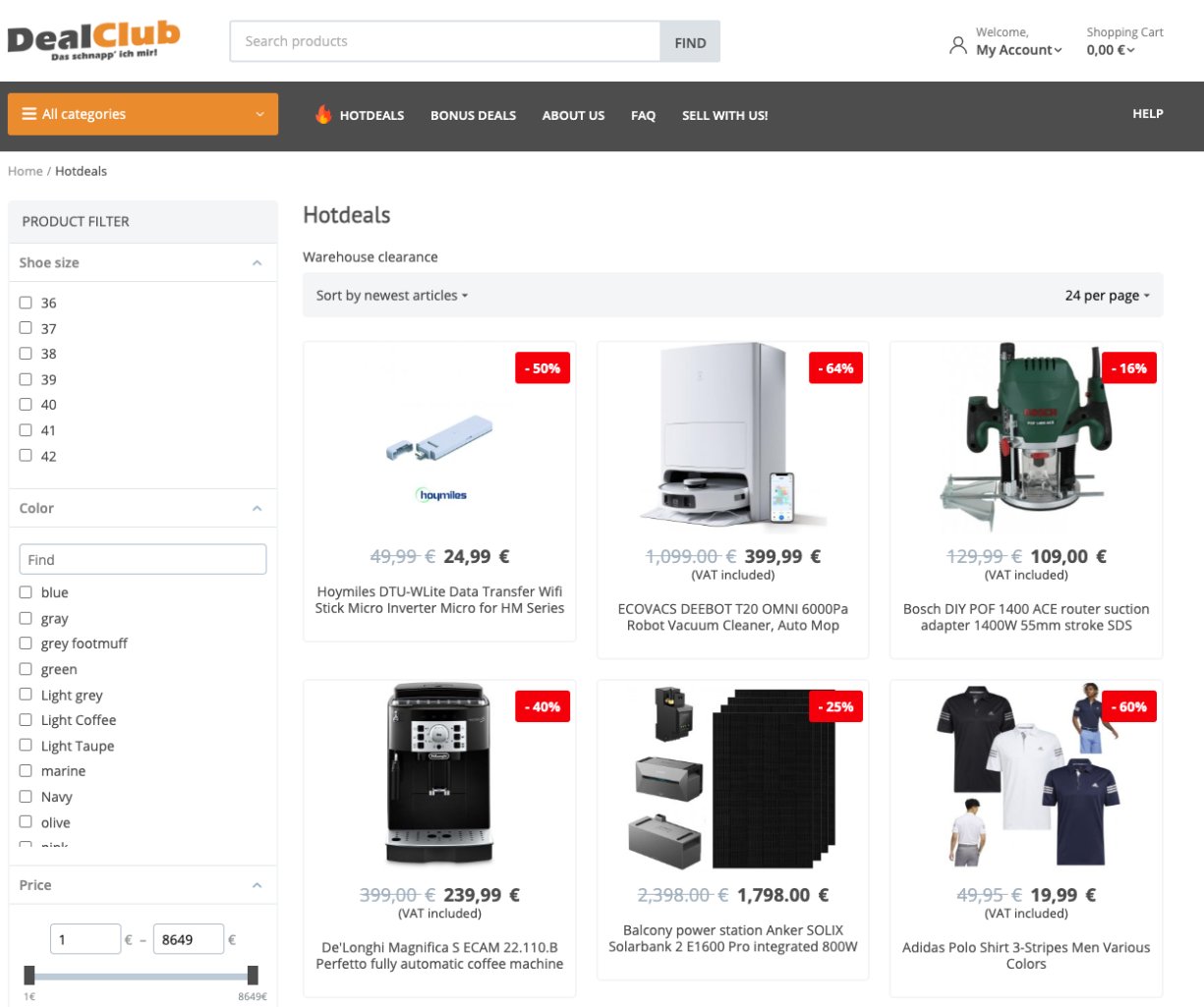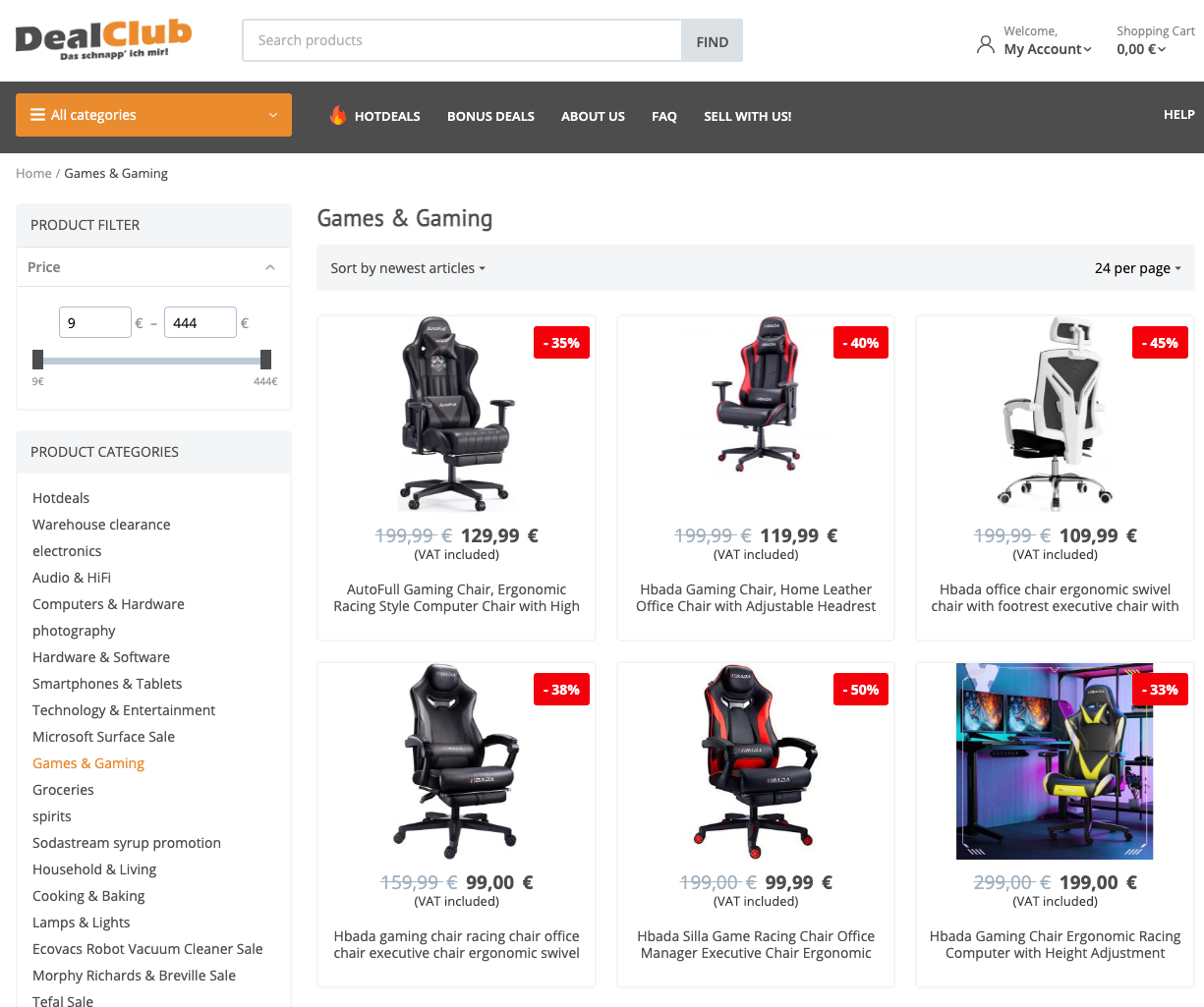
Main Features
- Vendor Management
- Product Management
- Order and Shipping Management
- Payment Gateway Integration
- Customer Management
- Analytics and Reporting
- Scalability and Customization
Project details:
Since 2010, DealClub has been the go-to platform for loyal customers, bargain hunters, and deal collectors, offering an unparalleled shopping experience with the best deals available. Powered by the robust CS-Cart PHP Framework, our multi-vendor marketplace brings together professional dealers and power sellers, providing them with a highly trafficked platform to launch limited-time offers and exclusive sales campaigns.
DealClub is designed to deliver unbeatable prices across every imaginable category. Every day, our customers can look forward to discovering an array of heavily discounted products, with promotions often featuring discounts of up to 80%. From electronics to fashion, home goods, and more, we continuously promote the best deals to ensure our users never miss an opportunity to save big.
Our platform thrives on the excitement of limited-time deals, making shopping fast-paced and rewarding, with a focus on providing value to both sellers and buyers.
ScreenShots
The screenshots show an overview of the project, development roadmap, and design in detail to you.
We will choose solutions stacks that will work the best for your projects and will improve project quality.
The CS-Cart PHP Framework is a versatile platform designed for building multi-vendor marketplaces and eCommerce websites. Here are the key technology stacks and components that CS-Cart uses:
1. Programming Languages
- PHP: The core programming language for the framework.
- JavaScript: Used for interactive elements and front-end behavior.
- HTML/CSS: For structuring and styling web pages.
2. Front-End Framework
- Smarty Template Engine: A PHP-based templating system used for the front-end rendering of pages.
- Bootstrap: Provides a responsive design and layout system.
- jQuery: JavaScript library used for dynamic elements and AJAX functionalities.
3. Back-End Framework
- MVC Architecture (Model-View-Controller): Separates the application into models (data), views (UI), and controllers (business logic).
- MySQL/MariaDB: The relational database used for storing all application data (products, vendors, customers, orders, etc.).
4. APIs and Extensions
- REST API: For integration with external applications, mobile apps, and third-party services.
- Add-ons System: Extensible via plugins and add-ons for adding custom features.
5. Caching and Optimization
- Cache Management: Built-in caching mechanisms for improved performance.
- Full-Page Cache: Speeds up the delivery of pages to users by caching the entire content of frequently accessed pages.
- CDN Support: Compatibility with content delivery networks to speed up content delivery globally.
6. Security
- CSRF/XSS Protection: Security measures to prevent Cross-Site Request Forgery and Cross-Site Scripting.
- SSL Support: Ensures secure transactions by supporting HTTPS encryption.
- Password Hashing: Uses secure hashing mechanisms for storing user passwords.
7. Search and Filtering
- ElasticSearch / Sphinx (optional): Powerful search engines used for fast and accurate product search, especially in large catalogs.
- Built-in Search Functionality: Product and content search with filters based on attributes like price, category, and availability.
8. Payment and Shipping Integrations
- Payment Gateways: Supports a wide range of payment gateways like PayPal, Stripe, Authorize.Net, etc.
- Shipping Services: Integrated with services like FedEx, UPS, DHL, and more for real-time shipping calculations.
9. Performance Enhancements
- Database Optimization: Designed to handle large-scale data efficiently.
- Lazy Loading: Optimizes page load speed by loading images and content only when necessary.
- Minification: Combines and minifies JavaScript and CSS files to reduce page load time.
10. Version Control and Deployment
- GIT Support: For version control and collaboration in development.
- Docker (optional): CS-Cart can be deployed using Docker for containerized environments.
11. Multi-Language and Localization
- Multi-Currency Support: Allows transactions in multiple currencies.
- Multi-Language: Supports multiple languages with language translation capabilities.




